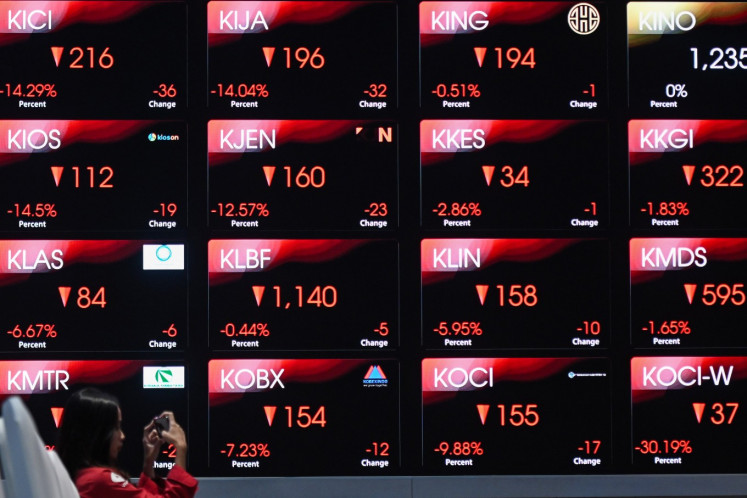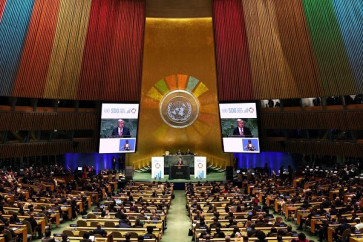Popular Reads
Top Results
Can't find what you're looking for?
View all search resultsPopular Reads
Top Results
Can't find what you're looking for?
View all search resultsWhere we are with our SDGs: Between data and target
Coordination, synchronization and consolidation across institutions, particularly their data, are vital to overcoming the obstacles to achieving Indonesia's SDGs.
Change text size
Gift Premium Articles
to Anyone
U
nited Nations Secretary-General António Guterres stated at the second Sustainable Development (SDGs) Summit in New York last month that only 15 percent of the SDGs had been achieved globally. A global rescue plan of US$500 billion annually is needed to carry out effective debt relief.
Canadian Prime Minister Justin Trudeau emphasized in a closing statement that heads of state and world leaders should no longer be in "denial" regarding the still poor performance in achieving the SDGs. In fact, many countries still had difficulty achieving the 17 SDGs.
Meanwhile, National Development Planning Minister Soeharso Monoarfa said in an article titled “Indonesian Sustainable Development Report Card”, published on Oct. 2 in the Kompas daily, that Indonesia currently ranked 75th out of 166 countries in terms of SDG progress, up 27 places from 2019.
According to data from the National Development Planning Agency (Bappenas), Indonesia has achieved an average 63 percent of the 216 indicators for its 2021-2024 SDGs program action plan. However, regional performance in achieving the SDGs was still lower because the development gap remains quite high, especially in the social pillar.
The social pillar of the SDGs covers: (1) no poverty, (2) no hunger, (3) healthy and prosperous life, (4) quality education and (5) gender equality. In essence, it aims to achieve quality fulfillment of basic human rights fairly and equally to improve welfare for the entire community.
In general, the 17 SDGs are divided into four pillars, namely the social pillar, the economic development pillar, the environmental development pillar and the legal and governance pillar.
The highest SDG achievement was in the environment pillar at 81 percent, followed by the economy pillar at 63 percent, the legal and governance pillar at 57 percent and finally, the social pillar at 52 percent.


















